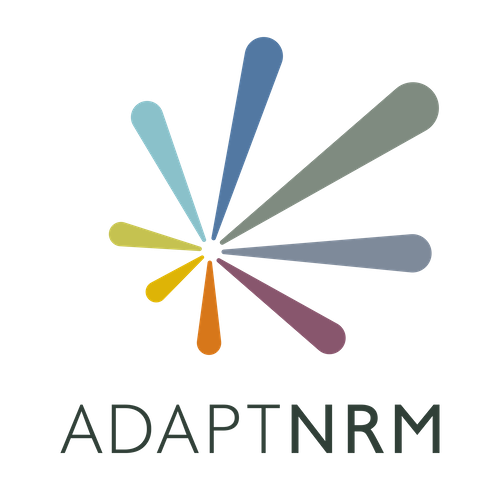Provide opportunities for you to learn from each other.
There are a multitude of styles that individuals use to learn, and equally, there are just as many theories that explain them. One core concept about learning is that it is a process of creating knowledge, through experience or through abstract concepts.
Thus, a learner can create and re-create knowledge by bringing together experiences – their own and others – facilitated by different types of social interactions. This is the premise behind communities of practice and cross-disciplinary teams. When different experiences and conceptualisations are brought together, learners can recreate their own knowledge. At the same time, they have the potential to transform the combined knowledge of the community of practice they participate in. Facilitating these social learning experiences for stakeholders can help rapidly and deeply embed new information in their practices.
-
 How this principle was used in AdaptNRM
How this principle was used in AdaptNRM A focus on experiential and social learning for AdaptNRM meant that it was important to move away from the traditional transmission approach to learning. We just don’t produce and provide information on climate adaptation. Module delivery sessions were designed to encourage participants to share what they think of a concept with other NRMs, based on their experience (‘concrete experience’) or opinion (‘abstract conceptualisation’). Participants were asked to prepare for the sessions by reading the module material beforehand, relying less on scientists to present concepts themselves. They were then encouraged to discuss what the concepts mean for them, and how they might apply the concepts to planning.
This reflective process of information intake and sharing allows NRM planners to push and pull the information in a module that enables them to 1) apply concepts much easier to planning and 2) recreate the knowledge for their own use, and share this with other stakeholders.
-
 Ideas for how you can apply this principle
Ideas for how you can apply this principleIn the context of learning, NRM groups provide strong nodes of interconnectivity, “an enabler of deep learning” (see Wenger’s paper for more on this). This is because the practice of NRM requires the combination of multiple disciplines, applied by multiple stakeholders to a range of issues. It is an ideal platform for transforming knowledge through social learning in communities of practice. One of the key challenges of NRM planners in integrating climate adaptation into planning, is gaining stakeholder buy-in and support for planning initiatives. With stakeholders coming from multiple backgrounds, communication can be difficult and time consuming. Utilising the concept of social learning for stakeholder management is a potential pathway for not only gaining support, but also harnessing advocacy and creating valuable informal spaces (see Principle 8). AdaptNRM products, particularly key messages and the website, are designed as communication devices for NRM stakeholders. Used the right way, they can serve as triggers for conversations, and pathways for solutions. It may be useful to try:
- Inviting multiple stakeholders to work together in workshop settings
- Asking stakeholders how they might use a plan or strategy, in addition to asking what they think of it
- Including ‘open discussion’ sessions where different types of stakeholders have the opportunity to informally discuss issues that provide a common ground for solutions

